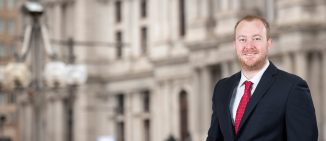Paid Leaves Happen in Philadelphia: New Amendment Requires Additional COVID-19 Emergency Leave to Employees
Philadelphia Mayor Jim Kenney recently signed an amendment to Philadelphia’s paid sick leave law, which provides paid leave to workers not already covered by the Families First Coronavirus Response Act (“FFCRA”). Companies who are not covered by the FFCRA – such as “gig economy” employers and health care providers – should pay close attention to the new provisions, which are summarized below.
Paid Public Health Emergency Leave
As previously outlined by HR Legalist, Philadelphia’s sick leave law, the Promoting Healthy Families and Workplaces Ordinance (“Ordinance”) mandates 40 hours of paid sick leave for many employees within city limits. The latest amendment revises the Ordinance to add 80 hours of new “Public Health Emergency Leave” for a number of categories of employees not otherwise eligible for pandemic-related leave under the federal FFCRA.
Notably, Public Health Emergency Leave is not limited only to “employees.” Rather, it applies to individuals working for certain categories of “hiring entities” – regardless of whether or not they are labeled “employees – if they perform work within the geographic boundaries of the City of Philadelphia for at least 40 hours in a year: (1) various in residence caretakers; (2) individuals working for a food delivery network company (i.e., GrubHub or Postmates); (3) individuals working for a transportation network company (i.e. Uber or Lyft); and (4) certain healthcare professionals who work based on their self-determined availability. In other words, this Ordinance is aimed at providing public health emergency leave to gig workers, with a particular emphasis on healthcare workers and drivers.
Unlike the FFCRA, which does not apply to companies with 500 or more employees, the revised Ordinance applies to businesses regardless of size. It also contains a rebuttable presumption that an individual working for a hiring entity is an employee, as opposed to an independent contractor. In order to rebut this presumption, the hiring entity must show that (1) the individual is free from the control and direction of the hiring entity in connection with the performance of the labor or services, both under the contract and in fact; (2) the individual performs labor or services that are outside the usual course of the hiring entity’s business; and (3) the individual is customarily engaged in an independently established trade, occupation, profession, or business of the same nature as that involved in the labor or services performed. This three-part test, which is similar to the “ABC” test used in New Jersey and other employee-friendly states, can be very difficult to meet.
Covered individuals not entitled to FFCRA leave must be given Public Health Emergency Leave in the amount of (1) 80 hours; or (2) the average hours worked per day over the prior 6-month period multiplied by 14, whichever is greater, up to a maximum of 112 hours. A public health emergency, which occurs when a situation is a “declared or proclaimed emergency related to a public health threat, risk, disaster, or emergency that affects Philadelphia that is made or issued by a federal, state or local official with the authority to make or issue such a declaration or proclamation,” includes the COVID-19 pandemic. Covered individuals may use Emergency Leave for generally the same reasons FFCRA leave may be taken, including quarantine or isolation orders, on advice of a healthcare provider, or for caretaking obligations.
There are some notable caveats, including an exception for individuals who are capable for working remotely. Moreover, this Ordinance does not require a hiring entity to augment a policy that already meets or exceeds these requirements. Companies should avoid running afoul of the Ordinance as a result of hyper-technical documentation requirements. A “self-certified statement” asserting the leave was used for its intended purpose is sufficient under the Ordinance. In addition, a company cannot require a worker to find coverage for a shift in order to take leave. Finally, employers must provide a “notice of rights” to employees immediately, as the Ordinance has already gone into effect.
Lost Wages for Health Care Workers
The above amendment comes on the heels of additional benefits that were recently extended to pool and healthcare employees working in Philadelphia in early September. That separate amendment to the Ordinance defines “pool employee” as “any health care professional, other than an employee of a temporary placement agency, who works only when he or she indicates that he or she is available for work and who has no obligation to work when he or she does not indicate availability,” and defines “health care professional” as “any person licensed under Federal or Pennsylvania law to provide medical or emergency services, including but not limited to doctors, nurses and emergency room personnel.” This amendment provides compensation for covered employees for lost wages and medical expenses if they become infected by a communicable disease (such as COVID-19) during a pandemic or epidemic affecting the City of Philadelphia. Under this provision, employers must reimburse the employee for all lost wages related to the disease when the employee is unable to work, and for all medical expenses related to treatment for the disease (or, alternatively to provide medical treatment at its facility free of charge to the employee). The amendment is unclear as to whether any proof is required that the employee contracted the disease at work.
The Obermayer team expects that regulations will be issued to clarify certain ambiguities in the amendment to the Ordinance, and will continue to monitor new developments. In the interim, employers are encouraged to consult with employment counsel so as to ensure compliance with this amended Ordinance.
The information contained in this publication should not be construed as legal or medical advice, is not a substitute for legal counsel or medical consultation, and should not be relied on as such.






